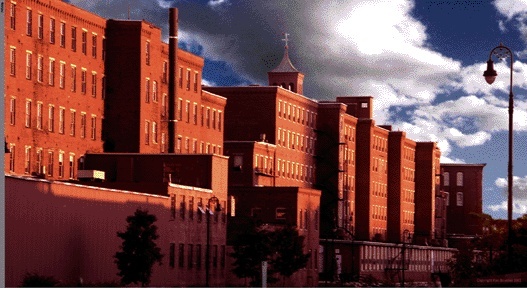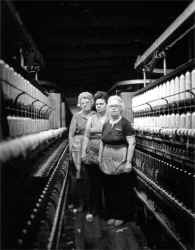
We so enjoyed the
The Constabulary Capers Revisited that we wanted to bring the
merriment north, to Manchester. Please join us for a sharing of
"life's glories" at the first ever Bread and Roses Manchester
Geo-Event!
The event is held at the
listed coordinates on February 6, 2006. The venue has a back
room, that's where we'll be. This is a smoke-free environment.
We've told the pub that we'll be arriving around 6pm but feel free
to trickle in, it would help the wait-staff. The pub closes at
9:45pm. See the menu, (
page 1,
page 2) prices are very reasonable.
Street parking is pretty easy in Manchester but you'll need a
quarter for a half hour on the meter before 8pm. There is a large
lot at 42 59.596N 071 27.635W. The entrance to the lot says "Permit
Only" but the spaces say "Permit before 5:30pm." I'm also sure
you'll find a metered space closer than that!
This is our first event and we're would appreciate it if you
would log a note if you will be attending and say if you'll want
dinner or just drinks. We can give the management an idea of the
attendance.
There will be a TB swap table and I'm hoping to get some swag
raffled off, but we'll see how generous the manufacturers are.
Bread and Roses
As we come marching, marching in the beauty of the
day,
A million darkened kitchens, a thousand mill lofts gray,
Are touched with all the radiance that a sudden sun discloses,
For the people hear us singing: "Bread and roses! Bread and
roses!"
As we come marching, marching, we battle too for men,
For they are women's children, and we mother them again.
Our lives shall not be sweated from birth until life closes;
Hearts starve as well as bodies; give us bread, but give us
roses!
As we come marching, marching, unnumbered women dead
Go crying through our singing their ancient cry for bread.
Small art and love and beauty their drudging spirits knew.
Yes, it is bread we fight for — but we fight for roses, too!
As we come marching, marching, we bring the greater days.
The rising of the women means the rising of the race.
No more the drudge and idler — ten that toil where one reposes,
But a sharing of life's glories: Bread and roses! Bread and
roses!
— James Oppenheim
 |
Last year we moved to Manchester and were immediately fascinated
with its history. First Nations tribes had already made the rich
fishing site a village; but as the Industrial Age progressed, men
with money also saw the potential of the Merrimack River and
designed a city that would become, and remain for many years, a
corporation town.
That corporation was the Amoskeag Manufacturing Company, and at
one time there was not a resident of Manchester who did not owe his
or her living in some way to the corporation. The Amoskeag mill
complex was the largest in the world, the ever-expanding job
opportunities bringing women into the workforce and attracting
immigrants from Canada, Ireland, and Greece. There was also the
dark side to the mills: long hours, child labor and poor working
conditions. The next time you pass by a mill building — any mill
building — look hard at the rows of long windows. They were closed,
all the time, so that nothing could contaminate the textiles being
manufactured. Imagine working in such a room in the summer: the
heat magnified by the glass, the deafening roar of the machines,
asking permission to leave the room to use the bathroom — and not
getting that permission. Blake described well the "dark, satanic
mills" of the nineteenth and early twentieth century.
But the twentieth century did bring some hope. A number of
movements aimed at bettering the lives of various groups of people
were making themselves heard. One such movement, demanding the
rights of women to vote, inspired a song titled Bread and
Roses.
The song was soon taken up by textile workers in Lawrence,
Massachusetts, who had recently voted to go on strike. After World
War One, the realization had been made that it was cheaper and more
efficient to locate textile mills in the south, near where the
cotton is harvested. New England mills responded to the competition
by lowering wages, increasing hours, and making the mills more
dangerous places to work. In response to these impossible working
conditions, workers went on strikes all over New England,
unintentionally yet effectively closing down the mills forever. The
Amoskeag survived the strikes of 1922, but closed its doors forever
in the 1930s. Manchester has only in the past twenty years begun to
rebound from the economic depression caused by the closing of the
mills.
We chose Bread and Roses as our theme for this event because of
its connection with the history of our city, with the terrible
times that preceded the strikes; but also because we connected with
what it expressed. We all need bread... but we desire roses. That
little extra something in life can be called a hobby, something
that is unnecessary for survival but which brings joy. Some of us
call that geocaching.